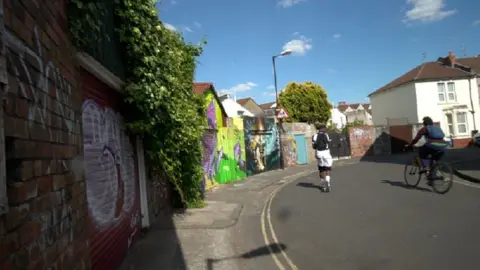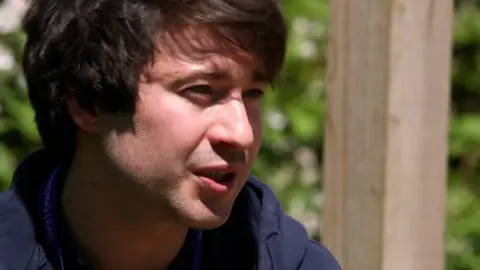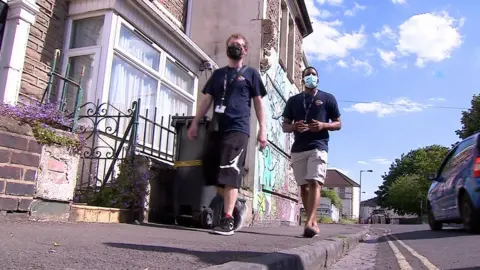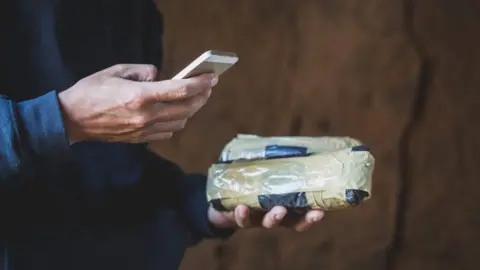Drug gangs on 'recruitment drive' during lockdown
 BBC
BBCDrug gangs have been on a "recruitment drive" during lockdown, targeting vulnerable children and increasingly girls, according to a report.
They are being groomed to carry drugs, because they are unknown to police, the National Youth Agency says.
And social media and "unsafe outdoor spaces" are being used to recruit them.
The children's commissioner for England warned with schools and youth clubs closed, thousands of vulnerable young people had "simply gone off the radar".
"Lockdown removed many of the usual ways of identifying children at risk of being exploited by gangs," Anne Longfield added.
The National Youth Agency report, based on responses from youth workers on the ground, is the first detailed examination of drug gangs during lockdown.
It has been sent to the government.
"There is increased concern around the use of girls for gang activity", it says, because they find it easier to move around during lockdown.

In Bristol, where children make up nearly a fifth of the population, 65 have been identified as at "highest risk of criminal exploitation".
In a deserted adventure playground, in Hartcliffe, in the south of the city, lead youth worker Rob Farrow remembers, before the lockdown was implemented on 23 March, a safe place buzzing with young people.
"As soon as they walk in through those gates, they know 100% they are safe," he says.
"It gives them that moment to relax and be children without being worried that they are going to be exploited into a gang.
"What you might see through crime statistics is everything's gone down
"Actually, the reality is those at risk are now way more at risk.
"And those that weren't at risk are now at risk.
"What we've seen is young females introduced by their young male peers in order to get involved in criminal activity that we hadn't seen previously.
"The worst thing is, because we're not doing this work, we can't see those kids.

Mr Farrow's colleague, Joe Secret, says: "We now see young people in areas that are hotspots that were never involved in [crime] before".
Another youth worker, Omari Cato, says: "These are very fragile minds that don't quite understand that they're being groomed.
National Youth Agency chief executive Leigh Middleton said: "Covid-19 brought youth services in many areas to an abrupt halt, just at the time it was needed most.
"Without ready access to a youth worker, we fear a surge in violence and exploitation post-lockdown."
 Getty Images
Getty ImagesMeanwhile, police have used new tactics to close down 87 phone lines used to sell drugs.
But 800 to 1,100 remain active.
"We need to design out the ability to run these lines," Metropolitan Police Service Commissioner Cressida Dick said.
"We will work with whoever necessary to restrict the ability of these individuals to carry out this activity and destroy the business model of county lines entirely."
